When Iseul hears the cries of seagulls overhead, the seaside town of Shiratori comes into view. With the windows rolled down, the wind rushing past carries the scent of sea salt, and he breathes it all in. A breeze ruffles Kuro’s black hair as he drives on, and Iseul can’t help but liken him to a dog poking his head out the window.
The clear expanse of the sea unfolds below the highway, its waves crashing against steep cliffs, and the water is so vast that Iseul feels like he’s drowning in the very sight of it. Shiratori rises out of the sea, fading into the greenery of hills and mountains overlooking the water, and he’s never seen anything quite like this. The rays of the afternoon sun fall over their faces, lending a welcome warmth amidst the chill of the sea.
“Ever been here before?” Kuro asks, welcoming the sight like an old companion. His hair is windswept, moving with the wind running through the car. His left elbow props over the open window, relaxing against it. “It’s nice to get away from the big city once in a while.”
It’s one thing to leave the city and another to leave the country entirely.
“Never,” Iseul admits, staring out of the window. He raises a hand above his eyes to shield himself from the sun as they pass a stretch of terraced rice fields facing the sea. He’s reminded of the little things from his childhood, like his reflection rippling in the puddles of rice paddies, small frogs darting in tall grasses, and birds fleeing in sweeping patterns when storms rise. He’s spent so much time removed from his hometown in Nami that seeing something so reminiscent of it is almost an experience in itself. “I usually don’t leave Seoul unless it’s for a few days at a time.”
He’s been to Japan before, but even then, he’s never ventured this far out to the country, this close to the sea. He’s gazed out the window of bullet trains and Leo’s van when he traveled to perform at different venues across the country, watching staccato views scroll by, but more often than not, he slept on the way there.
Kuro drives across the bridge, bringing them closer to the town with sun-blistered wooden homes flanked by rich forests and shimmering waters on both sides. “I come to Shiratori by myself when I need inspiration or a change of scenery. It’s easier to concentrate here.” He slows down around yellow warning signs emblazoned with the image of the swan, the area’s most beloved animal. “The town’s population is fairly small, so everyone respects that you’re here to rest and recuperate.”
“So you run away here often,” Iseul says absently. He rests his cheek in his hand, the shape of his palm indenting into his face. He recalls Kuro’s family background being of both Korean and Japanese descent. The image of Kuro dressed in a cotton robe, sitting on the steps of a teahouse, fawned over by a swarm of local girls, even if they didn’t know who he was, somehow comes to mind.
“It’s more like going on a vacation where you don’t have to worry about your fans chasing you to the ends of the earth.”
“Is that what you tell your members?”
“No, they think I’m here to work.” Kuro laughs. “It’s true, this time. We’re here to get work done.”
Iseul makes a sound in acknowledgment, turning his gaze away from Kuro to catch sight of an old castle of white stone looming at the edge of the water. His fingers wrap around his phone, and he stops himself before taking a photo. Leo has more of an influence on him than he knows, but instead of capturing the scenery on his phone, he clings to the details and keeps them in his memories as they arrive in town.
Shiratori quietly hums all around them, inducing a sense of serenity that can’t be found in the city. Kuro drives along the canal bisecting the neighborhood, lined with blossoming trees and aged buildings on both sides, and Iseul pays attention to the coffee shops covered with pink wisteria, art museums with vintage paraphernalia, and vermillion gates arching over the entrance of sacred shrines. While he won’t admit it aloud, a part of him wants to step outside and see all these places when he's never had the chance to.
Kuro eventually pulls up to one of the many traditional inns in the neighborhood, where the words Turtle Island are etched into the kitschy wooden sign displayed above the front door. He parks away from the other cars at the entrance and turns off the engine. “Charming, isn’t it?”
“You drove all the way here to bring me to a hotel?”
“Don’t make this sound worse than it seems,” Kuro says dryly. “We’re staying here so I can show you around town.”
“We’re staying here,” Iseul repeats blankly. “For more than one day? My manager Leo doesn’t know about this. I don’t know about this—”
“Trust me.” Kuro opens the car door. “You’ll be able to get your work done without anyone bothering you here. I’m sure your management will be happy to know that you’re making progress on your music.”
Iseul leaves the car begrudgingly. The air smells of cedar and cypress, but the murmur of water can be heard. Behind them, the bamboo stalk in the garden slowly fills with running water. “Did you forget that you’re here?”
Kuro chuckles. “If this album’s going to happen, you need me more than anything. You’re not going to create something special over the span of one night.”
The bamboo gives way under the weight, expelling the water over the rocks, and flips back upright. The lower end hits the rocks below with a hollow thunk sound, breaking the silence of the garden. Kuro turns to leave.
With a deep exhale, Iseul follows him to the entrance, the paper doors whispering as they slide open. The walls of the reception area are painted a rich matcha green, illuminated by the light diffusing through rice paper screens in the back of the room. The place is empty except for a young boy standing behind the counter, clad in a robe the same shade of green. The owner’s son, perhaps?
The boy smiles brightly. “Kuro!”
“It’s been a while, Aoi," Kuro answers in perfect Japanese as he peers over the counter. “Where’s your aunt?”
“Aunt Kotone’s out buying groceries for dinner tonight. She’ll be so happy to see you! Are you here for the festival? Is this Iseul with you?”
With reluctance, Iseul nods. He can speak and understand Japanese from his language studies during his idol training period and from promoting overseas in Japan. But being seen with Kuro in public makes him uncomfortable—at an inn—nonetheless.
“That’s my hope. We’re going to stay for a bit,” Kuro says, sliding his credit card over the counter. “Maybe a week.”
Iseul sharply elbows him in his side. “A week?”
The smile on Kuro’s face tells him that they’ll be here for a week at least. Aoi processes Kuro’s credit card, looking like one of those diligent kids helping out with their family business. When he finishes, Kuro asks him to show them where they’ll be staying.
The wooden floors creak as they walk across the entrance pavilion. As Aoi leads the way, he turns to Iseul, eyes bright with awe. “You’re really cool when you dance! I watched you on TV when they were doing some kind of music show. Kuro performed there, too!”
“Thank you,” Iseul says kindly. “Do you want to be an idol too?”
When more children dream of becoming celebrities than teachers or physicians or scientists, it comes as a surprise when Aoi shakes his head. “Not really. My dad left us to become famous, so I never thought about it. I’m really happy helping Aunt Kotone. I do the dishes and fold the towels and air out the futons, but she says that I’ll get more responsibility some day.”
“You’re a good kid.” Iseul means it, because he thinks of everything he left behind in order to chase after his dreams in the big city. He doesn’t ask about Aoi's father, but if Aoi's features are anything to go by, he has the notion that he knows who he might be. “Does it ever get lonely here?”
Aoi offers him a wide smile. “I get to meet so many people every day! It’s fun to meet new people, but it’s always nice to see guests like Kuro who end up returning. He’s just never brought anyone with him before.”
“Right. I’ve never brought anyone with me before,” Kuro echoes, vaguely amused.
Shaking his head, Iseul brushes past him. Aoi continues the conversation with Kuro, asking about his plans for his time here, but Iseul walks ahead.
Where the room is partitioned off from the main hallway, he leaves his shoes behind and enters the room through sliding paper doors. The tatami floors have a pleasant rice straw scent to them that reminds Iseul of his childhood. Cushions surround the low wooden table on the floor, enough for him to sit down and work on his writing. An arrangement of azalea flowers and framed photos of the seaside are displayed on the alcove built into the wall.
Aoi even demonstrates that the doors in the back of the room lead to a secluded open-air hot springs bath with a sweeping view of the sea. With the warm hospitality emanating from their host, the tranquil quiet of their surroundings, and the earthy scent in the air, this should be the perfect place for Iseul to rest and work for a few days.
There’s only one problem.

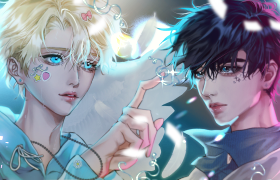
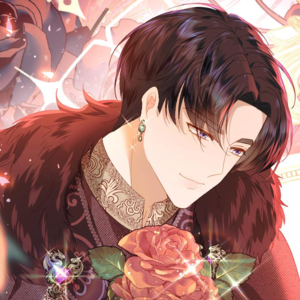
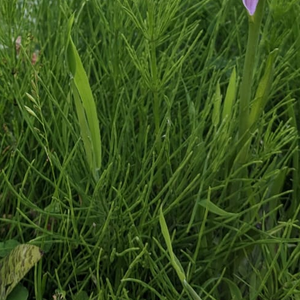
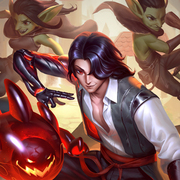
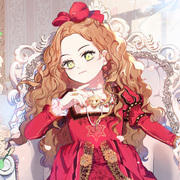
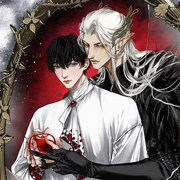

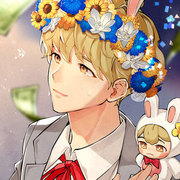
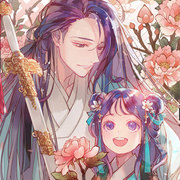


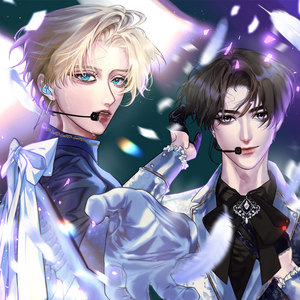
Comments (3)
See all